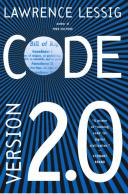Книга: Code 2.0
Problems with Code
Problems with Code
At a Harvard workshop around the time the first edition of this book was published, Jean Camp, a Harvard computer scientist who taught in the Kennedy School of Government, said that I had missed the point. The problem, she said, is not that “code is law” or that “code regulates.” The problem is that “we haven’t had a conversation about how code regulates.” And then to the rest of the audience, she said, “Did all of you like the debate we had about whether Microsoft Word documents would carry in them a unique identifying number? Was that a satisfying debate? ”
Her irony carried with it an important insight, and an interesting mistake. Of course, for the computer scientist code is law. And if code is law, then obviously the question we should ask is: Who are the lawmakers? Who writes this law that regulates us? What role do we have in defining this regulation? What right do we have to know of the regulation? And how might we intervene to check it?
All that is perfectly obvious for someone who thinks and breathes the regulations of code. But to a lawyer, both Camp and I, throughout this book, have made a very basic mistake. Code is not law, any more than the design of an airplane is law. Code does not regulate, any more than buildings regulate. Code is not public, any more than a television is public. Being able to debate and decide is an opportunity we require of public regulation, not of private action.
Camp’s mistake is a good one. It is a mistake more of us should make more of the time. Because while of course code is private, and of course different from the U.S. Code, its differences don’t mean there are not similarities as well. “East Coast Code” — law — regulates by enabling and limiting the options that individuals have, to the end of persuading them to behave in a certain way. “West Coast Code” does the same. East Coast Code does this by increasing the cost to those who would deviate from the rules required by the code. West Coast Code does the same. And while we might argue that East Coast Code is more prevalent — that it regulates and controls a far larger part of our lives — that is a difference in degree, not kind. It’s a reason to be balanced in our concern, not to be unconcerned.
Of course, there are differences between law and code. I don’t think that everything is necessarily public, or that the Constitution should regulate every aspect of private life. I don’t think it is a constitutional issue when I turn off Rush Limbaugh. But to say that there should be a difference is not to say that the difference should be as absolute as present constitutional thinking makes it. When we lawyers tell the Jean Camps of the world that they are simply making a “mistake” when they bring the values of public law to code, it is rather we who are making the mistake. Whether code should be tested with these constraints of public value is a question, not a conclusion. It needs to be decided by argument, not definition.
This won’t be easy, of course. Code is technical; courts aren’t well positioned to evaluate such technicality. But even so, the failure is not even to try. The formalism in American law, which puts beyond review these structures of control, is a third pathology that inhibits choice. Courts are disabled, legislatures pathetic, and code untouchable. That is our present condition. It is a combination that is deadly for action — a mix that guarantees that little good gets done.
- The problems with machine code
- Системные переменные ROWS_AFFECTED, GDSCODE, SQLCODE, TRANSACTIONJD, CONNECTIONJD
- Appendix B. Common problems and questions
- Appendix J. Example scripts code-base
- Using Double Quotes to Resolve Variables in Strings with Embedded Spaces
- Drawbacks with restore
- Problems loading modules
- mIRC DCC problems
- 7. AGGREGATION WITH INDEPENDENT WORKS
- Конструкция with-do
- Test Driver Code
- Regulating Code to Regulate Better




